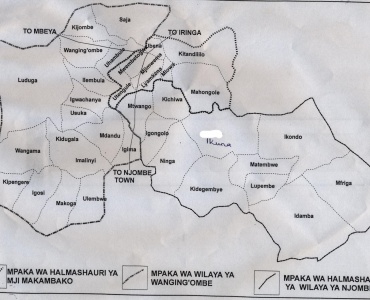Education is highly important in today society. Education is a formal process of learning in which some people consciously teach while others adopt the social role of learner. Education plays a major role of building capacity of people in mastering their environment. Education prepares a person to adapt to new skills and value that will be very essential in today society. Education help to improve daily life of Njombe community through application of skills and knowledge acquired from school which results to advancement of living standards. Education is a keystone of life, and in order to bring both change in economic and social dynamics, Tanzanian need quality education that entails access, retention and performance in Secondary schools. These pillars are among of the pertinent agenda in national development framework and thus this council is obliged to translate these issues into its strategic plan. Secondary education in Tanzania is a post primary formal education offered to students who will have successful completed seven years primary education (STD VII) and met necessary entry requirement.
Secondary education department is among various departments of Njombe district council having roles of providing education service to students and organize integrated post primary education (IPPE) through: supportive supervision in secondary education provisional and implementation of all National directives,policy and initiative at district level. According to the New Education Policy of 2014 basic education shall be fee free, with single textbooks for all schools and shall provide quality education recognized across the region and the world.
The government will collaborate with education stakeholders to modernize curricula at all levels and make sure that it meets education requirements, provide equipment, materials and tools needed for teaching and facilitating advancement of science and technology. The policy also emphasizes uniform textbook when teaching and facilitating in all schools in the country, instead of using many textbooks as we are using now.
The policy states that textbook ratio for secondary education should be 1:1, Teachers ratio 1:40 with teaching load of 24 to 28 period per week. The current situation for Njombe district council has not succeeded to meet a ratio of textbooks in science and mathematics subjects, and Arts subjects. In science subject Teachers ratio is 1:90 students and Arts subjects textbooks ratio is 1:3. Also in some secondary school classroom ratio is 1:70 students, Management of the Council struggle to meet all requirement of the New Education Policy before 2015. The major functions of secondary education are:
Education at secondary level has continued to be improved in terms of buildings and other important facilities in order to create conducive environment for the students to learn and teachers to teach. The improvement at secondary education can be proved by the increase in the number of classrooms in the old secondary schools. There is an increase of 2 secondary schools owned by public from 8 secondary schools in 2011/2012 to 10 secondary schools in 2016/17. In addition 1 secondary schools has been increased from 1 secondary schools in 2011/2012 to 2 secondary schools in 2016/2017, which are owned by private institutions/individuals.

Halmashauri ya Wilaya ya Njombe, Mtaa wa Kidegembye,Barabara ya Lupembe
Anuani ya Posta: S.L.P 547 Njombe
Namba ya Simu: +255 26 2782111
Simu Kiganjani:
Barua pepe: ded@njombedc.go.tz
Haki Miliki@2017 Halmashauri ya Wilaya ya Njombe. Haki zote zimehifadhiwa